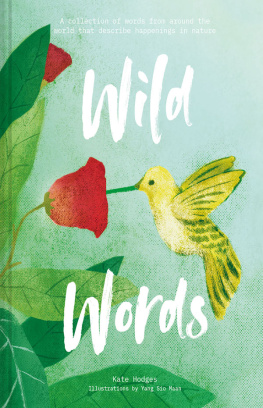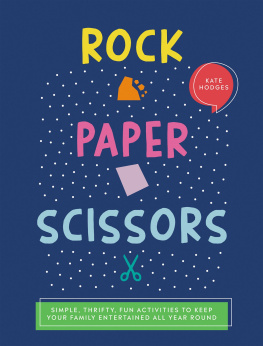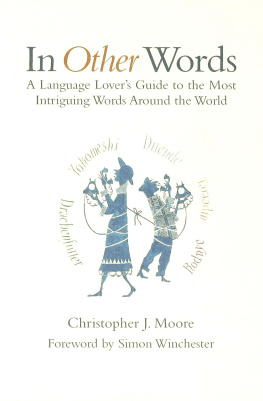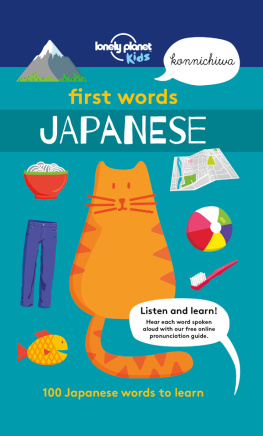Contents
Guide

For Rhona and Colin,
Jeff, Arthur and Dusty

Introduction
Words bestow power. By giving a tree, an animal or a weather phenomenon a name, we acknowledge its existence and mark its place in the world. Conversely, as those natural phenomena wane or disappear, so the terms needed to describe them gather dust and eventually fade from memory.
Across the world, languages spawn words as they are needed; Scotland has over 400 expressions for snow, while the Malaysian Jahai dialect has a finely calibrated lexicon of terms for smells in nature. If the climate, your culture or your safety when outside demand it, words can convey the tiniest, but most essential detail.
Our appreciation of the natural world can be enhanced through language. Now Im familiar with the word smeuse a passage beneath a bush or wall worn by the feet and sides of animals Ill never take a walk in the rolling Sussex countryside that surrounds my town without my eyes scanning the base of hedgerows. We can call nature into being with language and use it to bring the wild world vividly to life. Words deepen our understanding of our environment, as well as allowing us to communicate more powerfully about nature.
Sifting through words from around the world brought the wonders of the planet to my desk. While researching this book, my head took a trip to the furthest, most awe-inspiring corners of the Earth. I voyaged through Chinese caves, gazing in awe at rock formations, shook my head at magically glowing mushrooms, danced with witches across the hills of Germany and watched tiny hummingbirds delicately sipping nectar from trumpet-shaped flowers.
I learned about mysterious natural phenomena such as mistpoeffers the deep booms that echo from sea fog and even confuse scientists and lost myself in the magical Finnish legends that surround the Northern Lights. I took inspiration from notions of how to experience nature; Ill now take time to indulge in Norwegian friluftsliv, which is the notion that theres no better way to enjoy nature than doing something relaxing outside, or Ill justify an afternoon snooze in the sun as experimenting with the Italian art of meriggiare or taking an afternoon nap.
More generally, I was wide-eyed at how many of the terms I unearthed represent the fragile relationship between humans and the ecosystem. The Maori practice of using rhui bans to conserve is not only spiritual, but essential in a world where nature is constantly fighting its corner against the resource-stripping human race.
Words help to codify our relationship with the planet and can be political. Projects such as The Human Nature Dictionary, a work to create new words for the way that human activity and nature unintentionally intersect, interact or merge, are finding and sharing language that serves to act as a lexicographical shield against the ravages of humans.
Most inspiringly, words can transport us and can conjure up rainbows of colours, smells, tastes and sounds. A dip into this book and a deep drink of Yang Sio Maans inspirational illustrations will, I hope, give you a glimpse into different landscapes, allow a peep into cultures beyond your own, and serve as a little window onto the constantly changing, phenomenal beauty of the wild world.
Uitwaaien
(OWT-vye-en)
_______
Dutch, Verb
Uitwaaien means literally out-blowing, and the Dutch regard the practice as a near-spiritual cure-all. If youre feeling stressed and need to clear your head, or youve got the dry-skin, sluggish-metabolism, central-heating blues, a brisk jaunt outside in the wind will solve all problems. The Netherlands is known for its big-skied flatlands, so finding a blustery spot is rarely a problem. Whether you choose to wander in deep thought, get your blood pumping with a jog, or just face the wind and grin is up to you. Even five minutes uitwaaien in a stiff breeze will whisk away the cobwebs and leave you refreshed and ready to take on the world.
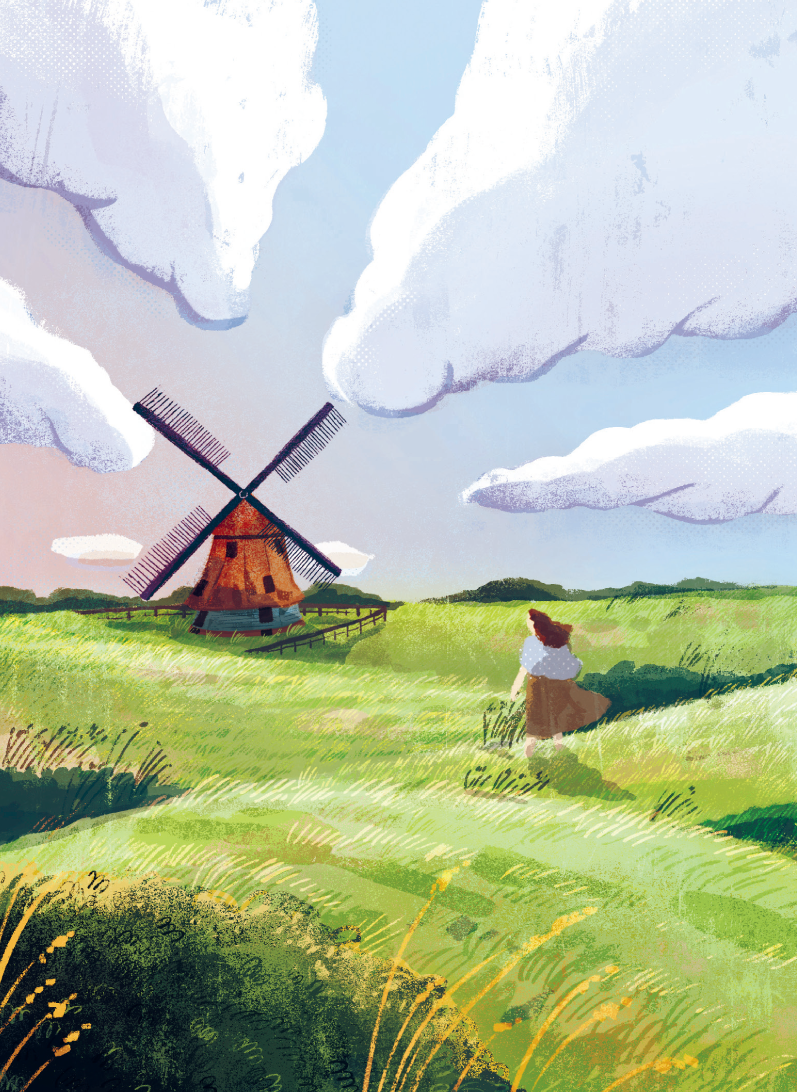
Rhui
(rah-hoo-ee)
_______
Mori, Noun and verb
Combining the practical with the sacred, rhui is the Mori practice of conserving resources through prohibition. If a field is exhausted, a rhui or a temporary ban or restriction on planting crops will allow it to recover. When a river is over-fished, a period of prohibition will encourage wildlife to flourish. A rhui may also be placed out of respect, to mark the site of a death or to make a political point. The orders are marked by ceremony and incantations and are often physically represented by a post, known as a pou rhui, while some rhui are now set down in law.
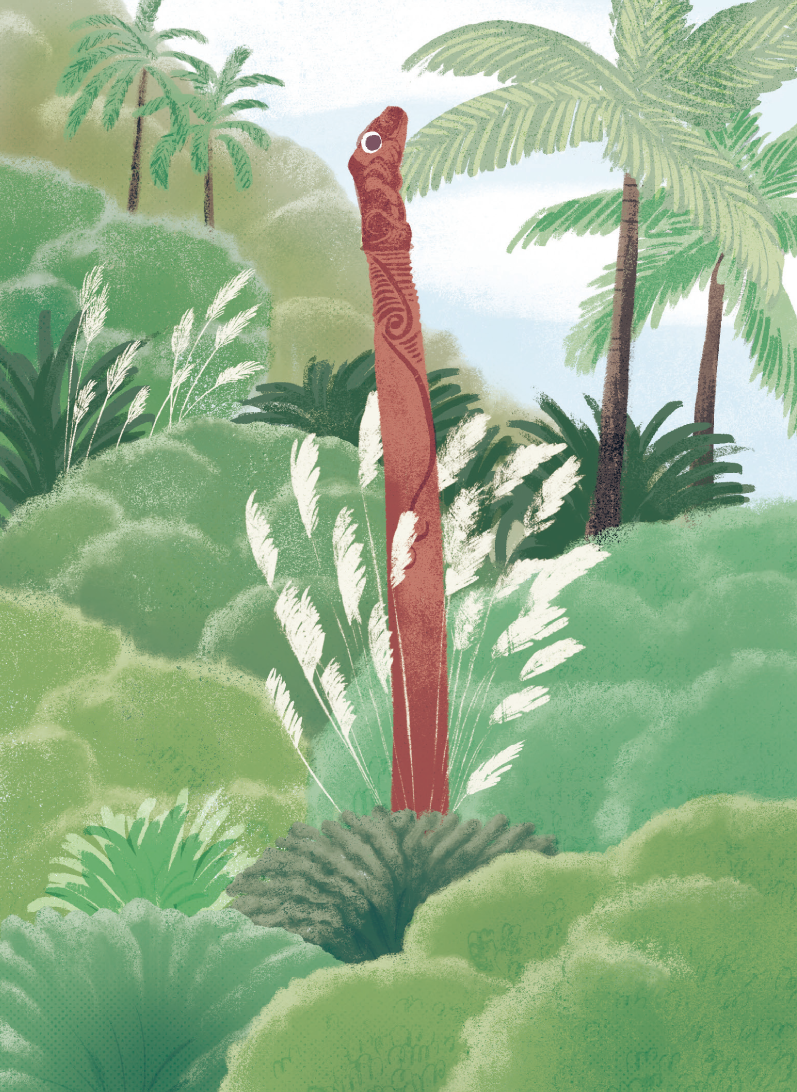
Mngata
(mo-an-gaa-tah)
_______
Swedish, Noun
Mngata means the silvery path that the moons reflection makes on water. The word combines the Swedish words mne (moon) and gata (street), summoning up a vivid image. In English, this effect is known as a glitter path, a term which also encompasses the same phenomenon when caused by the sun. Sailors will use the mngata to help navigate; the broader the pale road of light, the bigger the waves are likely to be, thus indicating shallower waters. Look out for one when the moon is bright, the sky is free from clouds and theres a panoramic view of the ocean.
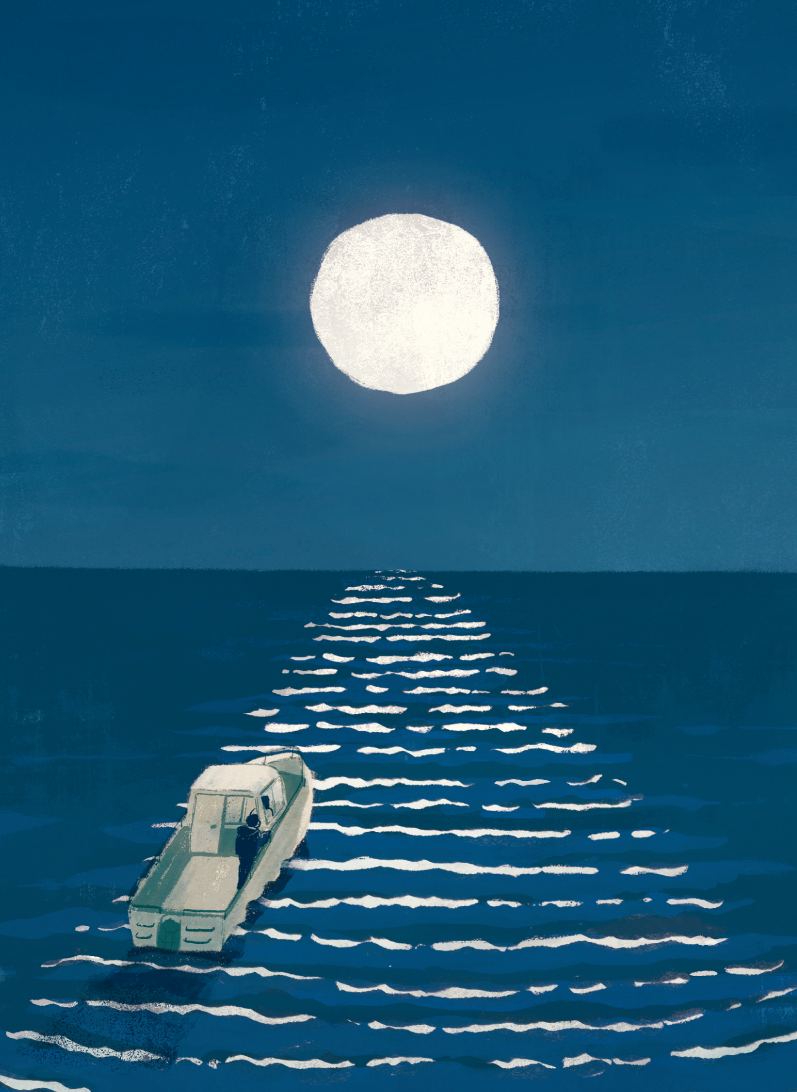
Sugar weather
(shu-garr we-ther)
_______
Canadian English, Noun
Canadas cultural fabric is intertwoven with the maple tree; its leaf even features on the nations flag. The countrys favourite, iconic, pancake-topping treat is the syrup made from the trees sap, which starts to rise at the start of spring. Its the time of year when the suns rays warm your face in the day, but you still need a blanket on the bed when the temperature dips below zero degrees centigrade at night. As the sap is tapped, then boiled in heavy pans, the honeyed smell of syrup drifting from kitchen windows and curling across still forests gives a name to these fragile, early spring days: sugar weather.
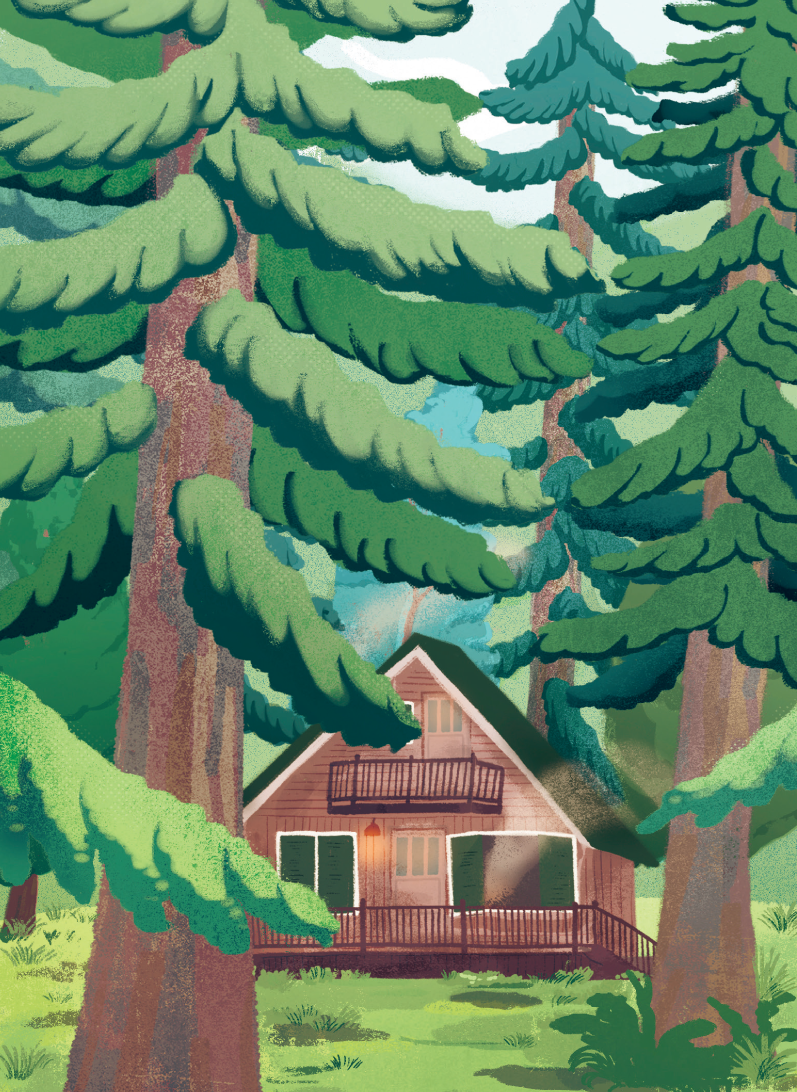
Oubaitori
(oh-buy-toe-ree)
_______
Japanese, Idiom
This four-character idiom is made up of the kanji characters for a quartet of trees famous for their beautiful blossom: cherry (), plum (), peach () and Japanese plum (). Cherries bloom boldly and beautifully in the spring, the plum in late winter. Peaches are said to ward off evil and promote a long life, while Japanese plums are associated with perseverance. According to the 12th-century Buddhist priest Nichorin, Cherry, plum, peach and damson blossoms all have their own qualities (

